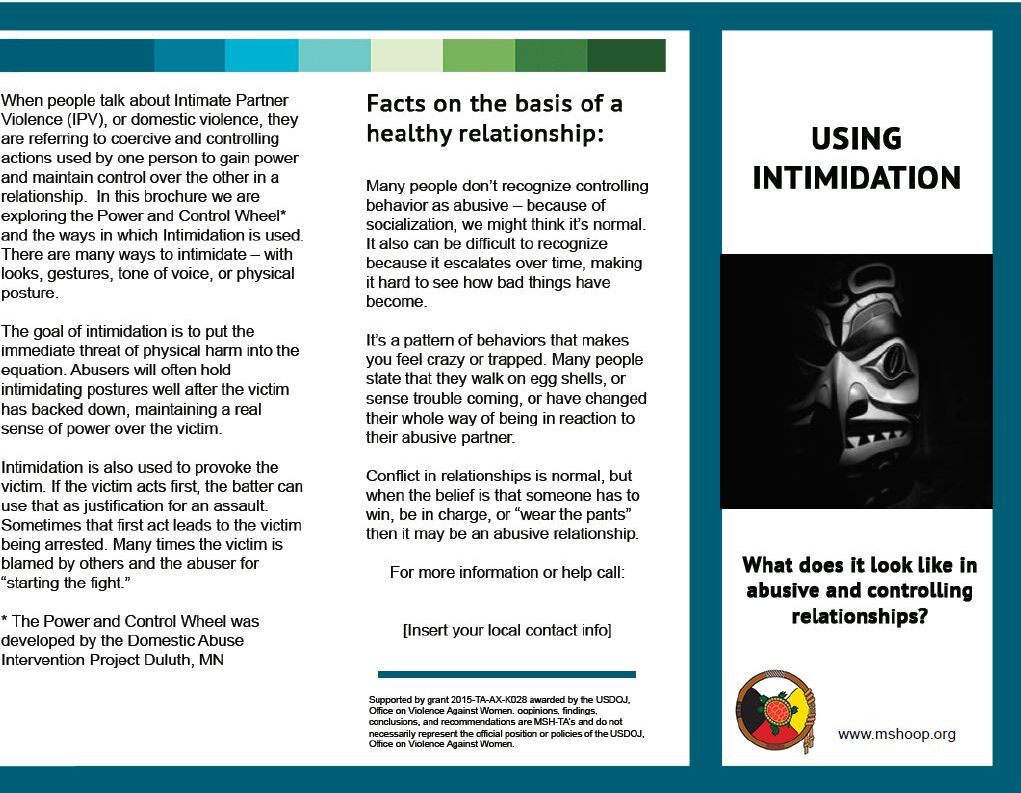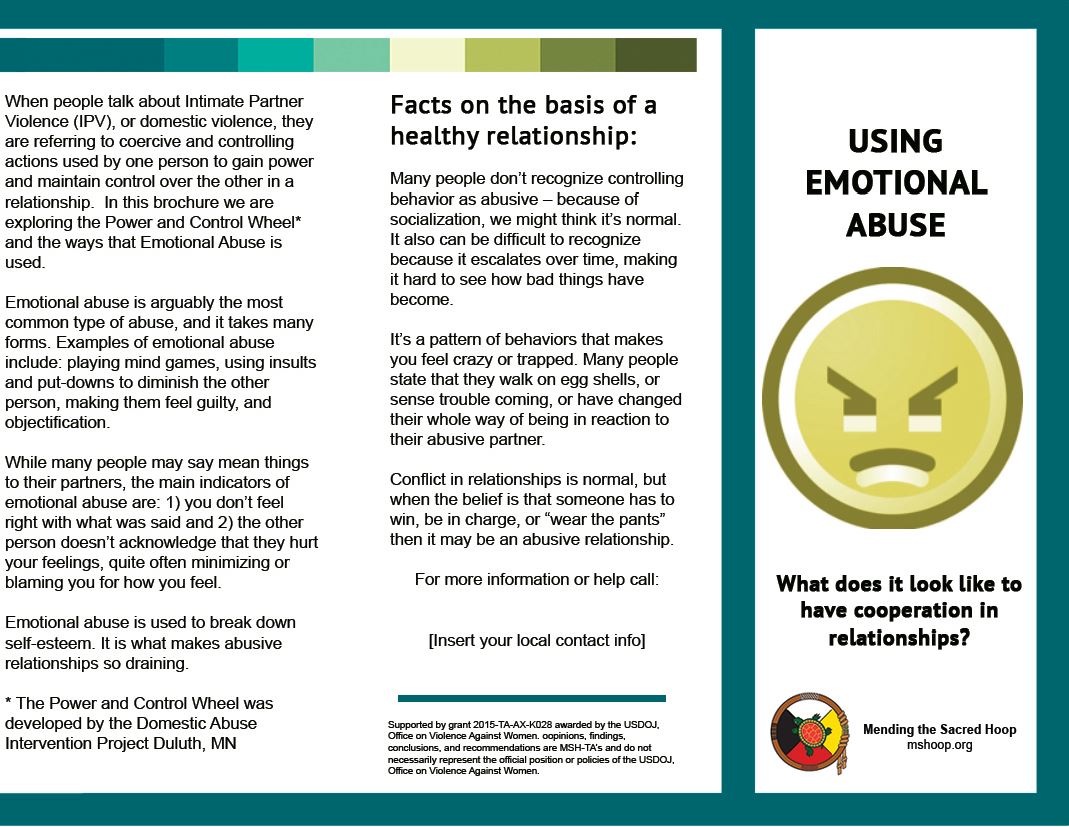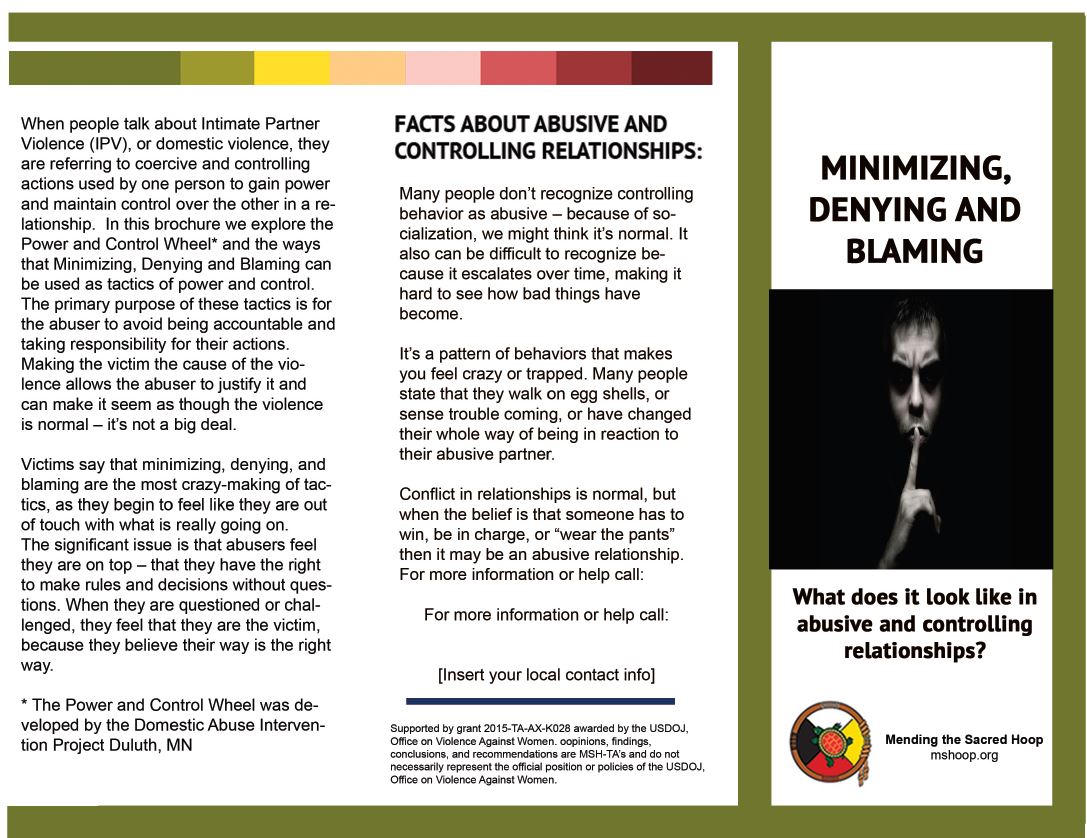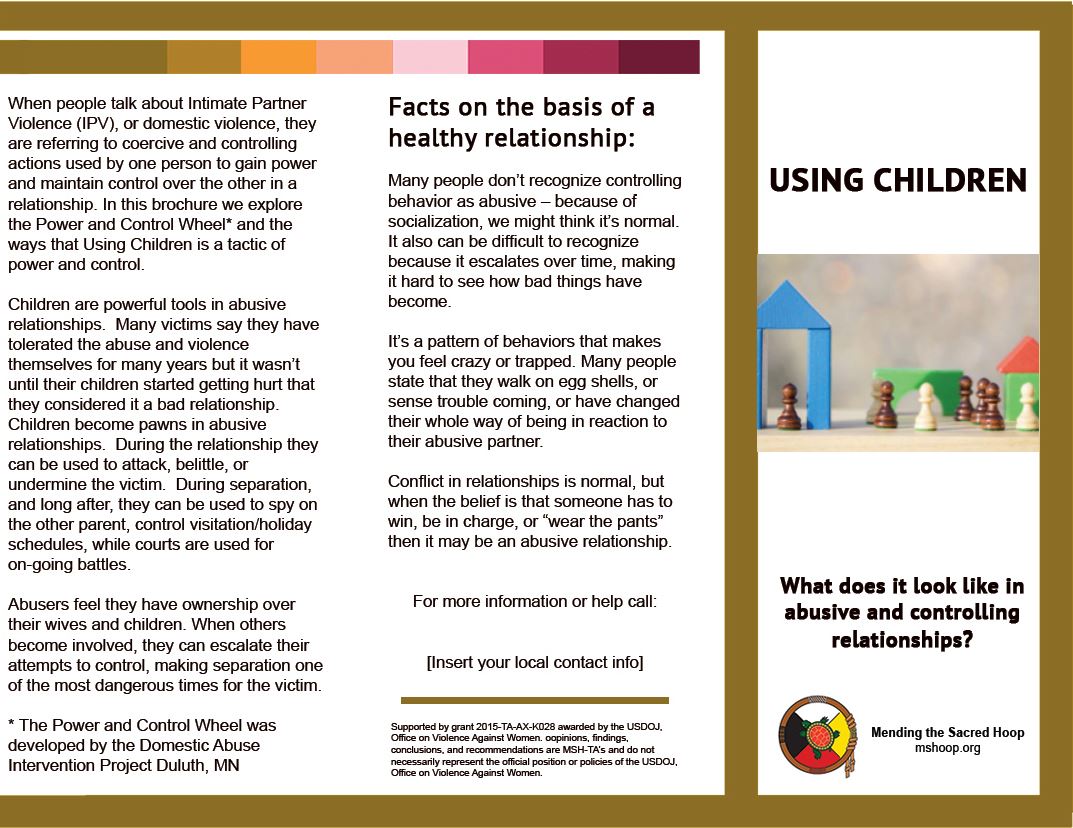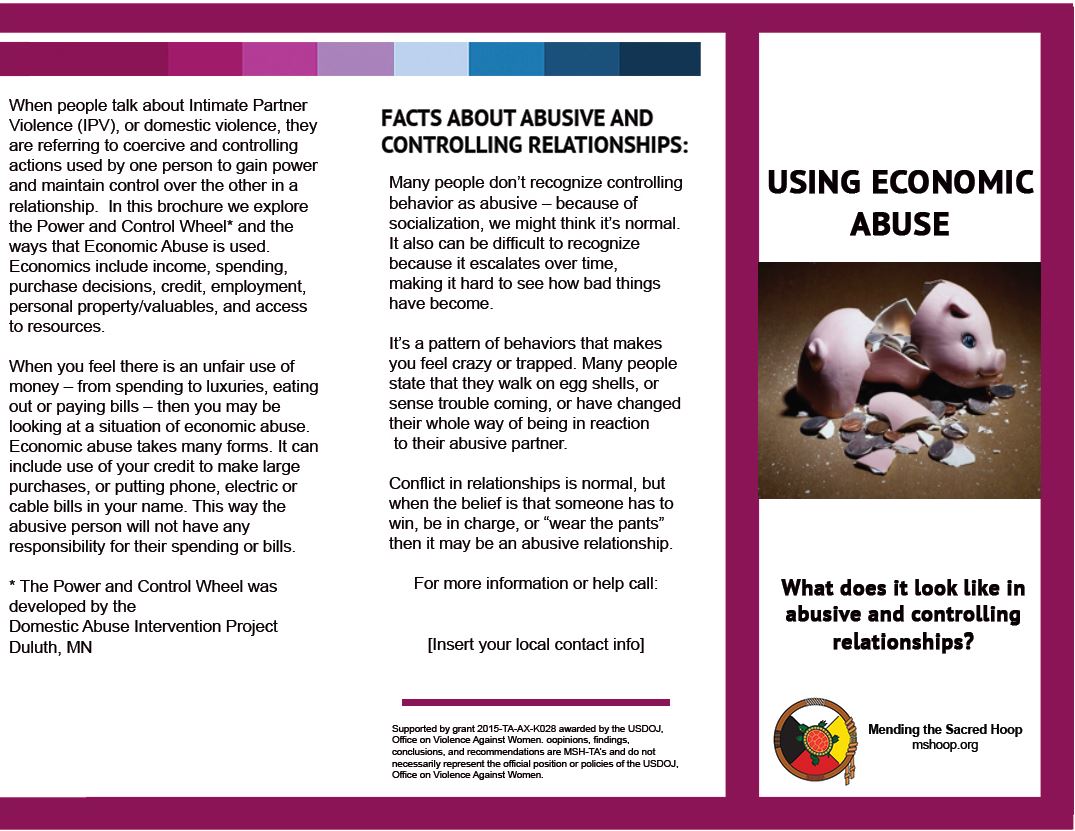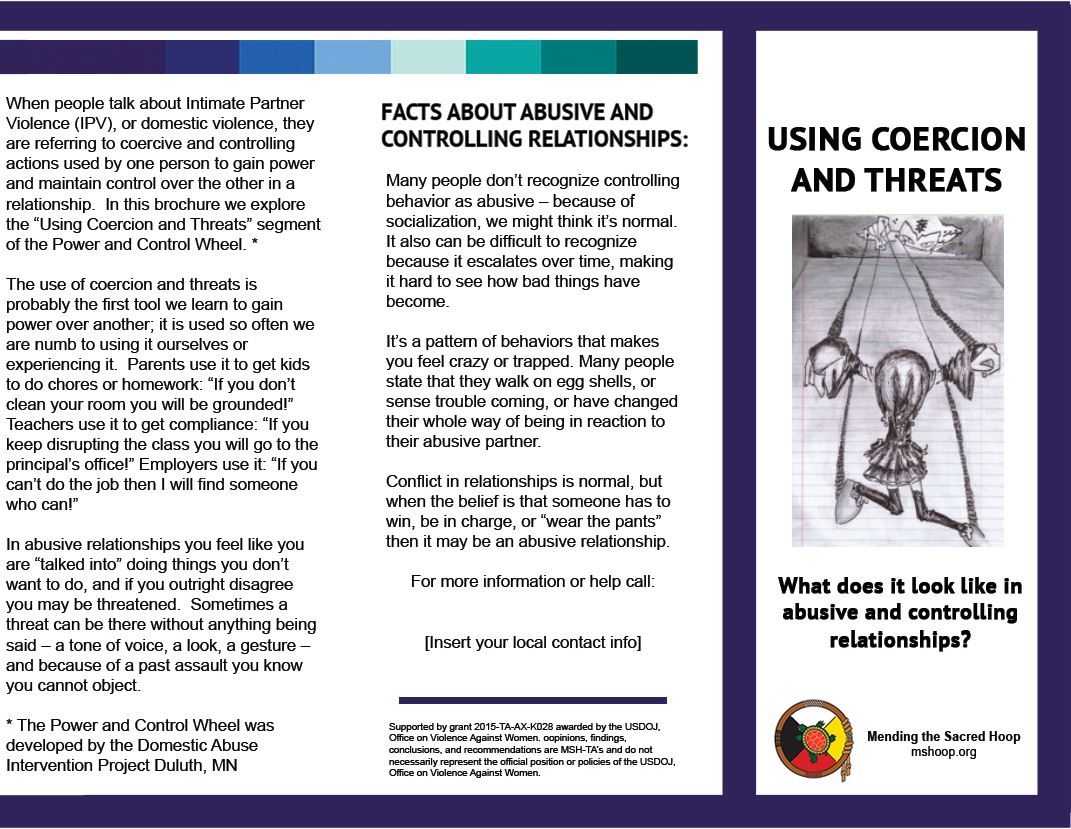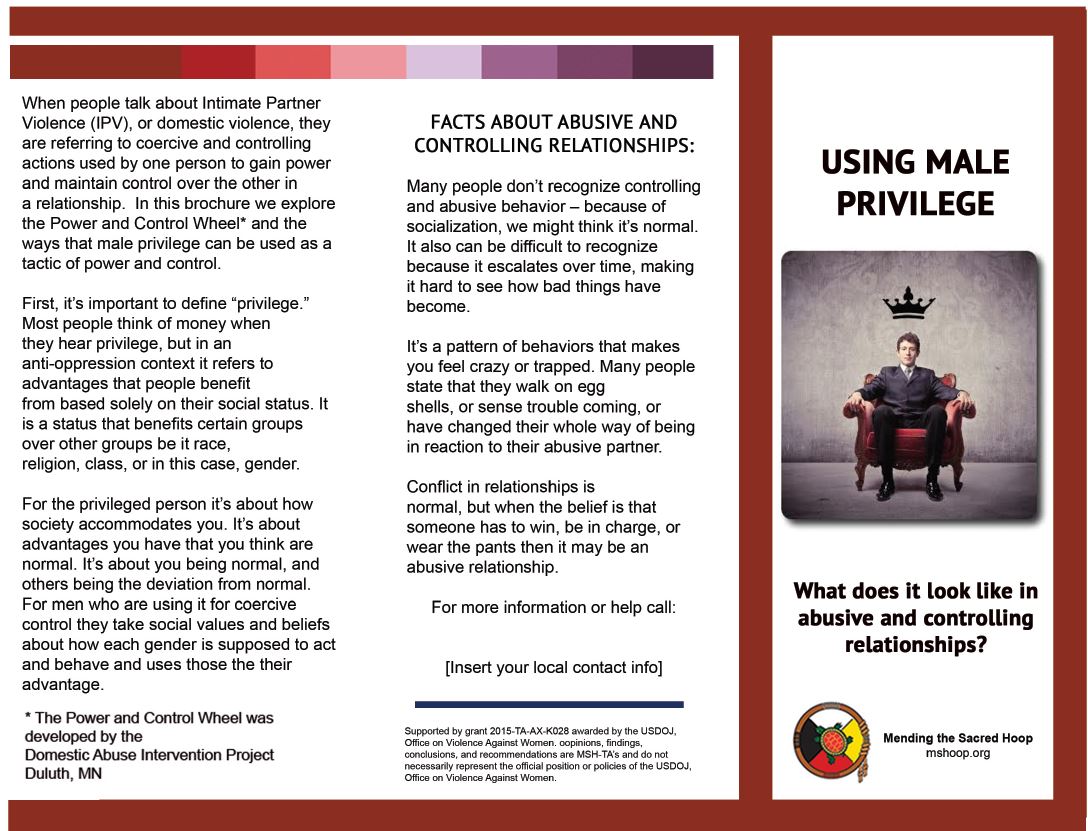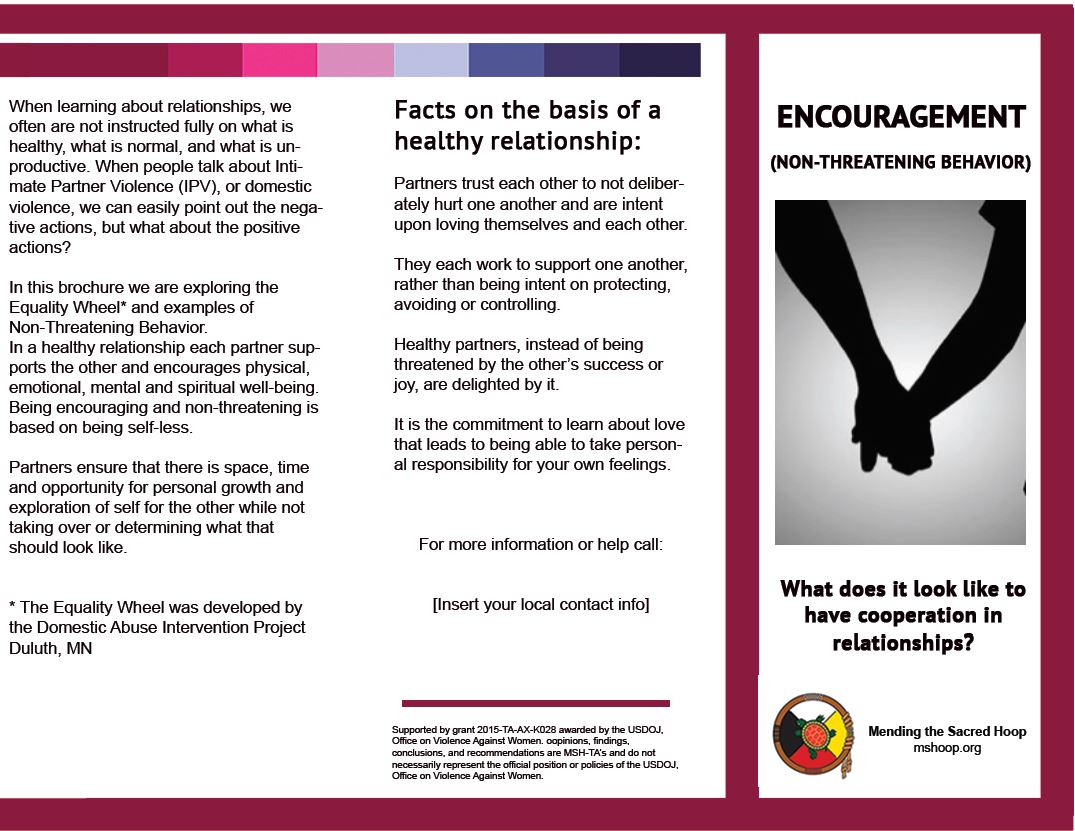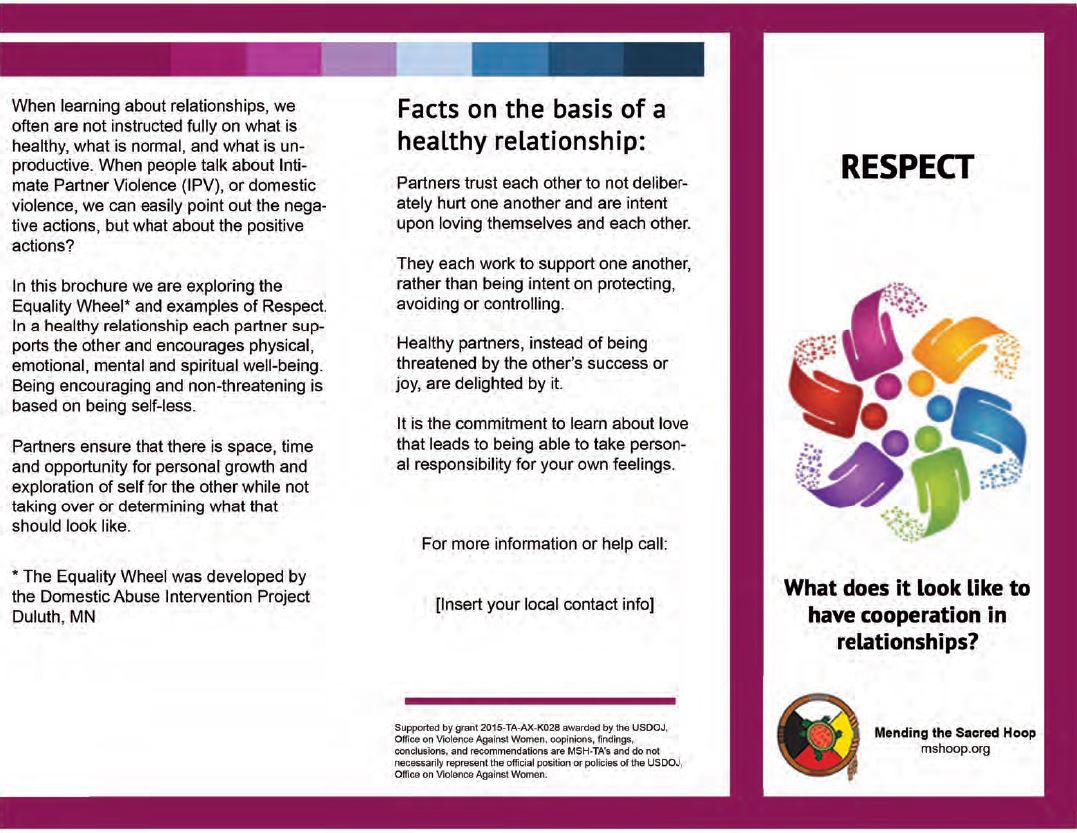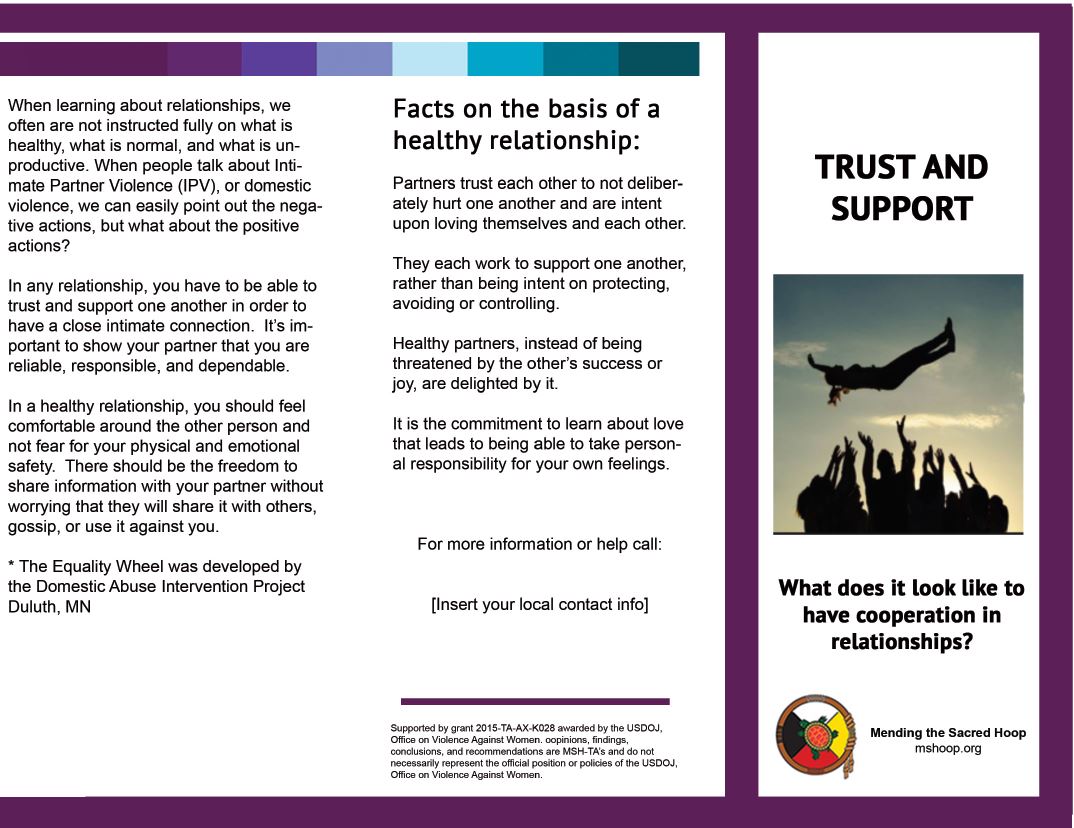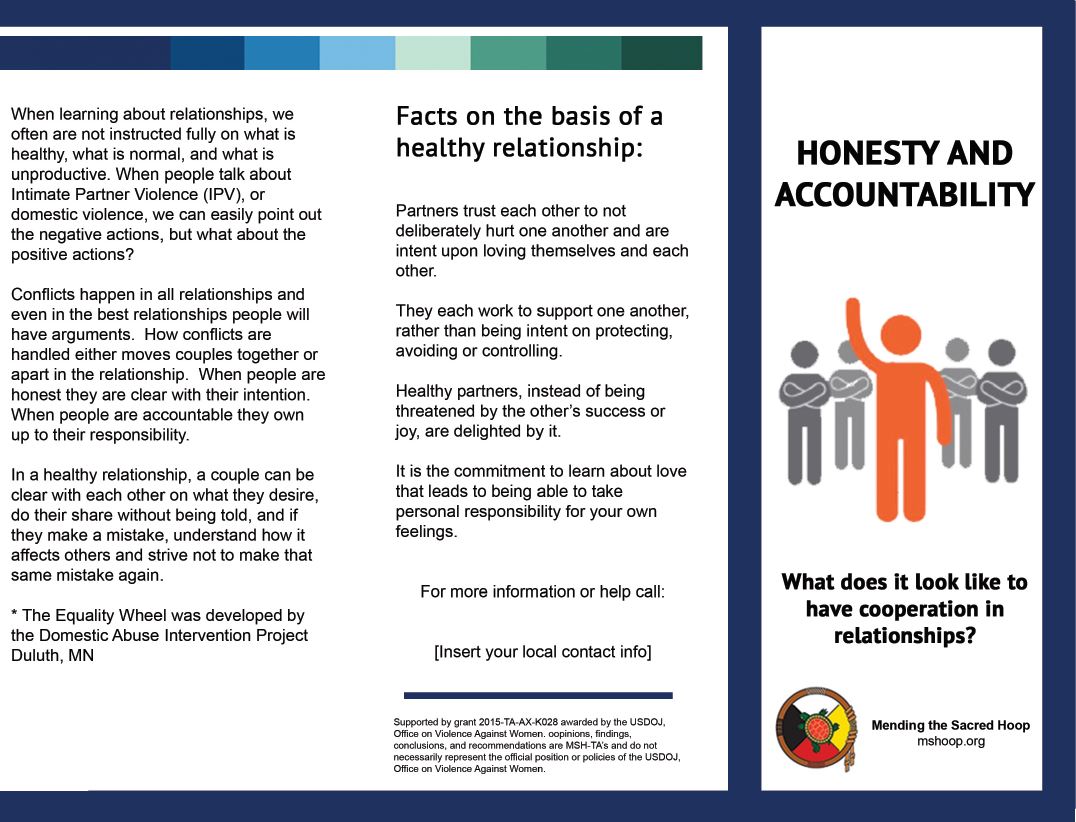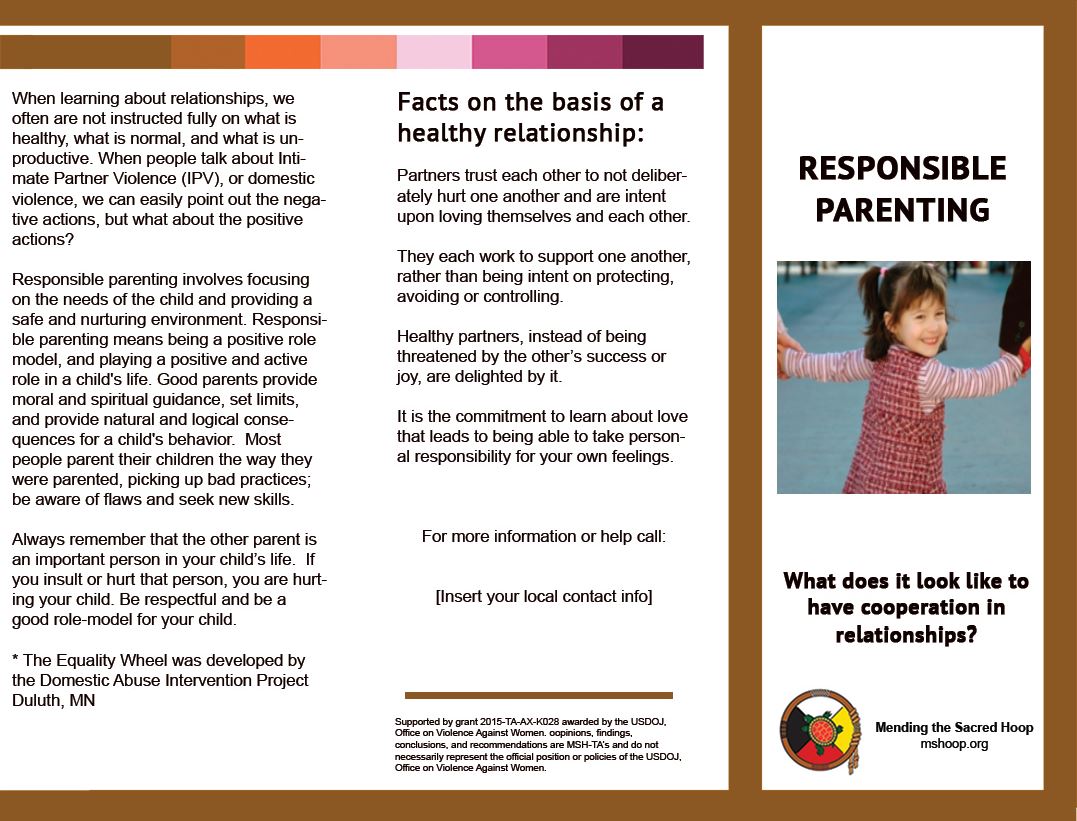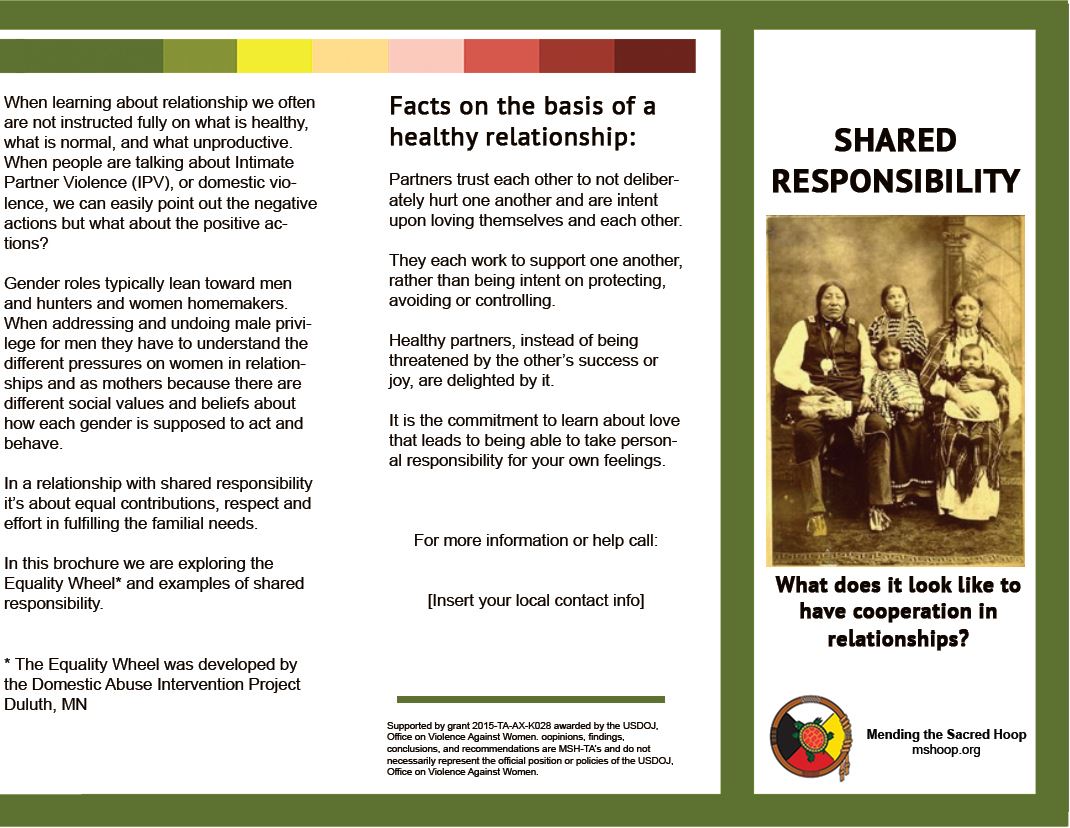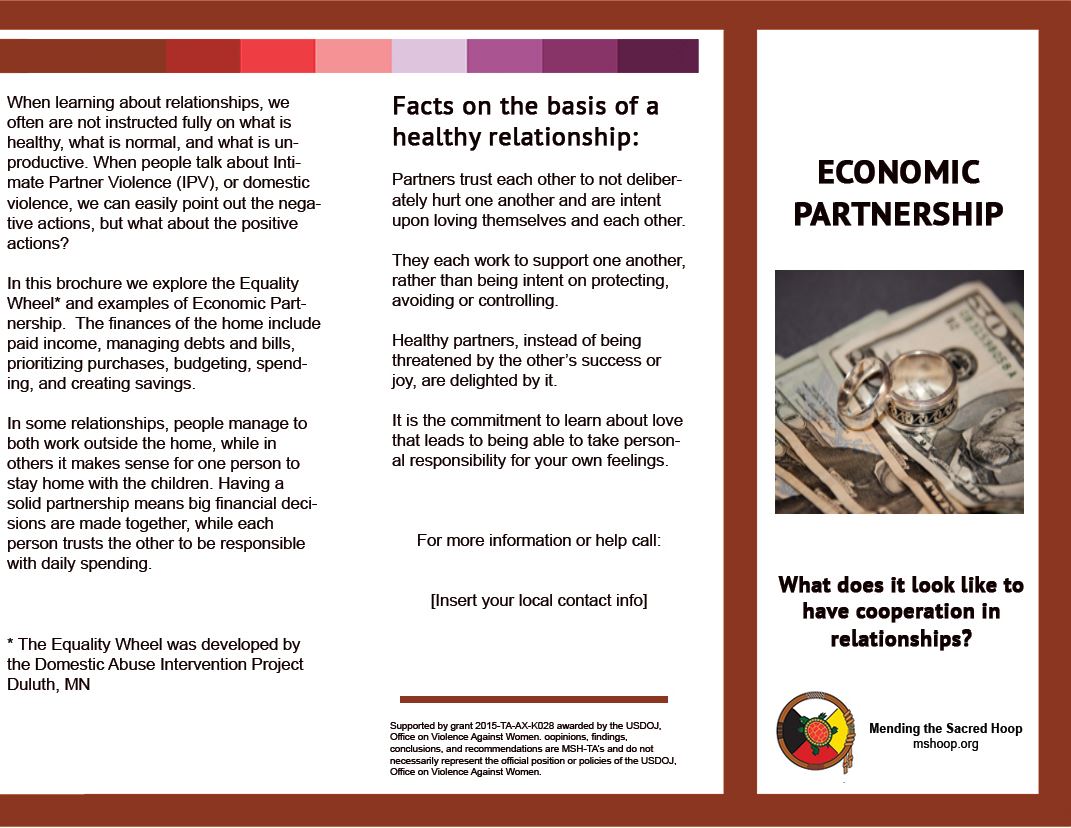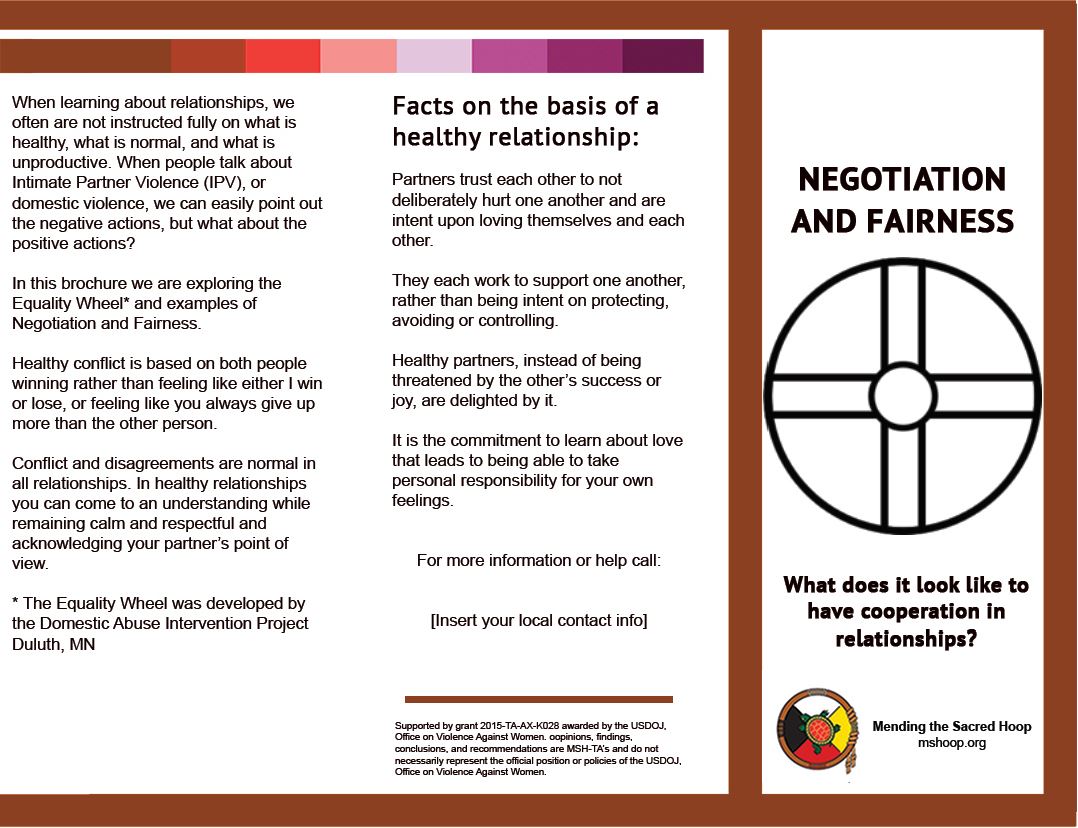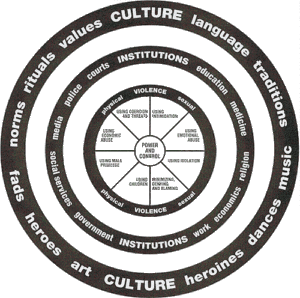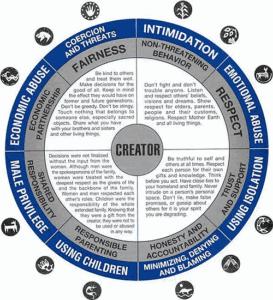Mending the Sacred Hoop, Inc. is a Native-led non-profit organization dedicated to addressing and ending violence against Indigenous relatives. We organize on issues surrounding violence against Native women in our home community of Duluth, MN and throughout the State of Minnesota. Nationally we work with Tribes and Native communities that are addressing the issues of domestic and sexual violence, dating violence, sex trafficking and stalking in their communities. We provide training to strengthen Tribal and Native community responses to these crimes, including advocacy and systems responses, community understanding and awareness, engaging men in the work to end violence against women, and coordinating community responses that provide for women’s safety and uphold offender accountability.
DOMESTIC VIOLENCE BROCHURES
Mending the Sacred Hoop TA Project has designed 8 DV Tactics brochures. Each brochure illustrates a tactic from the Power and Control Wheel. Readers learn how the use of such Power and Control tactics as intimidation, isolation, emotional abuse, economic abuse, or using children might look in a relationship.
RESOURCES
Additional Brochures:
MSH-TA also offers three brochures to help inform and educate people about domestic violence. “Domestic Violence” and “Abusive Relationships” gives facts about battering for women. “Respectful Relationships” offers information about battering for men. These brochures are easily duplicated and customized so that any organization addressing violence against women can use them in its own program. They can be changed to be specific to your program and community.
The work of addressing domestic violence involves the on-going process of education. In each community someone must lead the effort to speak out against the violence women experience, acknowledge the existence of domestic violence in the community, and get the community to break the silence. In order to address domestic violence, it is important for people to understand the problem and know how it impacts their lives.
Abusive Relationships:
The Abusive Relationships brochure is designed to give women an overview of abusive behaviors and potential risks for her and her children. It offers examples of abuse women experience in battering relationships, including the batterer breaking or smashing things, making threats or intimidating gestures, pushing, shoving, choking, name calling and insults. This brochure also gives women who are in violent relationships quick assessment points to determine their risk of increasing danger, listing behaviors that show the violence is escalating: an increase in the frequency and severity of the violence, needing more outside help from places like the courts, police, or advocacy programs; the batterer’s obsession or preoccupation with her activities.
These assessment points are meant to provide women with some warning signs, but makes the point that no assessment can predict the potential for increased violence or murder–a woman who is experiencing the violence is the best judge of her situation.
Many women have expressed concern over the impact domestic violence may have on their children (in many cases their fear for their children is the deciding factor in seeking help) and this brochure includes a list of the effects of violence on children. These range from the batterer’s use of the children as tools for manipulation and control, to the behavioral changes children in violent homes experience: frequent illnesses, anxiety, bedwetting, becoming violent themselves and having troubles in school.
It can be difficult for women in battering relationships to identify the relationship as violent. The brochure for women is intended to help them look at some of what they may be experiencing in their relationships in order to identify abusive and controlling behaviors. Having the local program’s contact information listed on the brochure will provide women with someone to contact if they feel they need more information or assistance.
As common as it is for women to fail to see the violence in their relationships as battering, it is even more common for men not to recognize their own behavior as violent or abusive. This is the reason we have created the third brochure, Respectful Relationships, which is geared toward men and their relationships.
Click to download Abusive Relationships
Domestic Violence:
The Domestic Violence brochure touches on the historical shift our cultures experienced that undermined our traditional acknowledgment of the importance of a balance of power between men and women and respect for the different roles each gender played in society. It also looks at domestic violence in today’s society as a pattern of behaviors used to control relationships, and closes with suggestions on how to address DV in our communities. This brochure is intended to be a starting point for people to think about domestic violence from a broader societal perspective, rather than an isolated problem between two people.
Click to download Domestic Violence Brochure
Respectful Relationships:
Respectful Relationships lists facts about battering for men. It considers the dynamics in our society that encourage to men to use violence as a means of enforcing authority. It asks men about how they view their role in intimate relationships, and presents a list of abusive behaviors. To help men identify abuse and violence, we include examples of physical, emotional, and sexual abuse. Furthermore, we illustrate controlling behaviors such as intimidation, isolation, using children, coercion and threats. It is our belief that people are not born inherently violent, but rather that society teaches and supports violent behavior. In keeping with this belief, we list suggestions for change. This gives men who identify with abusive behaviors alternatives that can help them create respectful relationships and a non-violent lifestyle.
Click to download Respectful Relationships
How to Use the Brochures:
We designed these brochures for programs offering domestic violence services. They are not intended for distribution where there are no specific services available. The information contained in the brochures may benefit community efforts to raise awareness about domestic violence. However, serious harm could occur if there no services available for women and men. Seriously consider the unintended consequences of distributing these brochures and raising these issues without having a place for people to go and get help. If specific programs do not exist for men and women, it may mean that individual community members will need to be identified as resources for people looking for help.
The brochures are available to download in MS Word to customize to fit your local program. We designed each brochure as a three panel, single sheet document that fits an 8 ½” x 11” standard sheet of paper. As such, you can easily duplicate it with your desktop printer. For larger-scale distribution, we recommend a print shop. The exterior page contains areas for you to provide program contact information, program logo or insignia, statistics, information about services provided, or additional resource information.
You’ll find a sample copy illustrating the different ways to use the space on the exterior side. We designed the text on the interior page for the margins of a tri-fold brochure. We do not recommend altering this page. Simply click on the brochure you want and save each file on your computer. Open the documents using MS Word and make the changes you desire on the exterior page and print. Then turn the paper over to print on the opposite side and print the interior page. Now your own customized brochures are complete.
Other Violence Against Native Women Resources:
Violence Against Native Women Fact Sheet»
Domestic Violence, Child Welfare and Supervised Visitation In Native American Communities»
MSH – Understanding the Continuum of Sexual Violence»
Using Alternative Healing Ways»
ORGANIZING A COORDINATED COMMUNITY RESPONSE»
OVW Tribal Technical Assistance Provider Fact Sheet
OUR MISSION
Mending the Sacred Hoop works from a social change perspective to end violence against Native women and children while restoring the safety, sovereignty, and sacredness of Native women. We are dedicated to strengthening the voice and vision of Native peoples. Our approach is founded on grassroots organizing within communities, restoring the leadership of Native women in addressing domestic and sexual violence.

